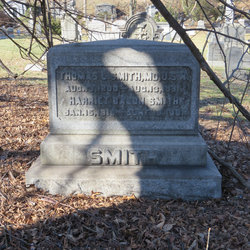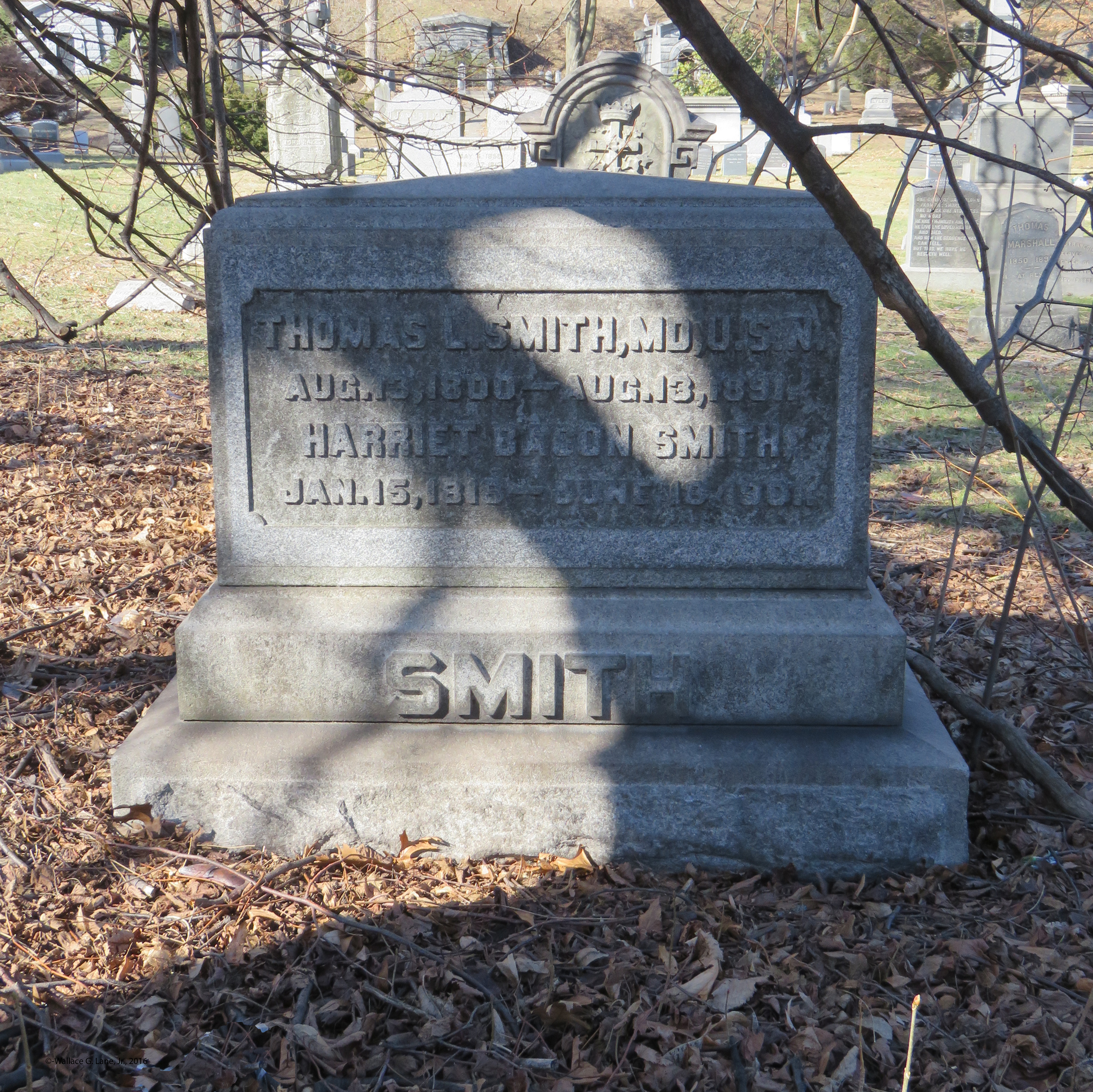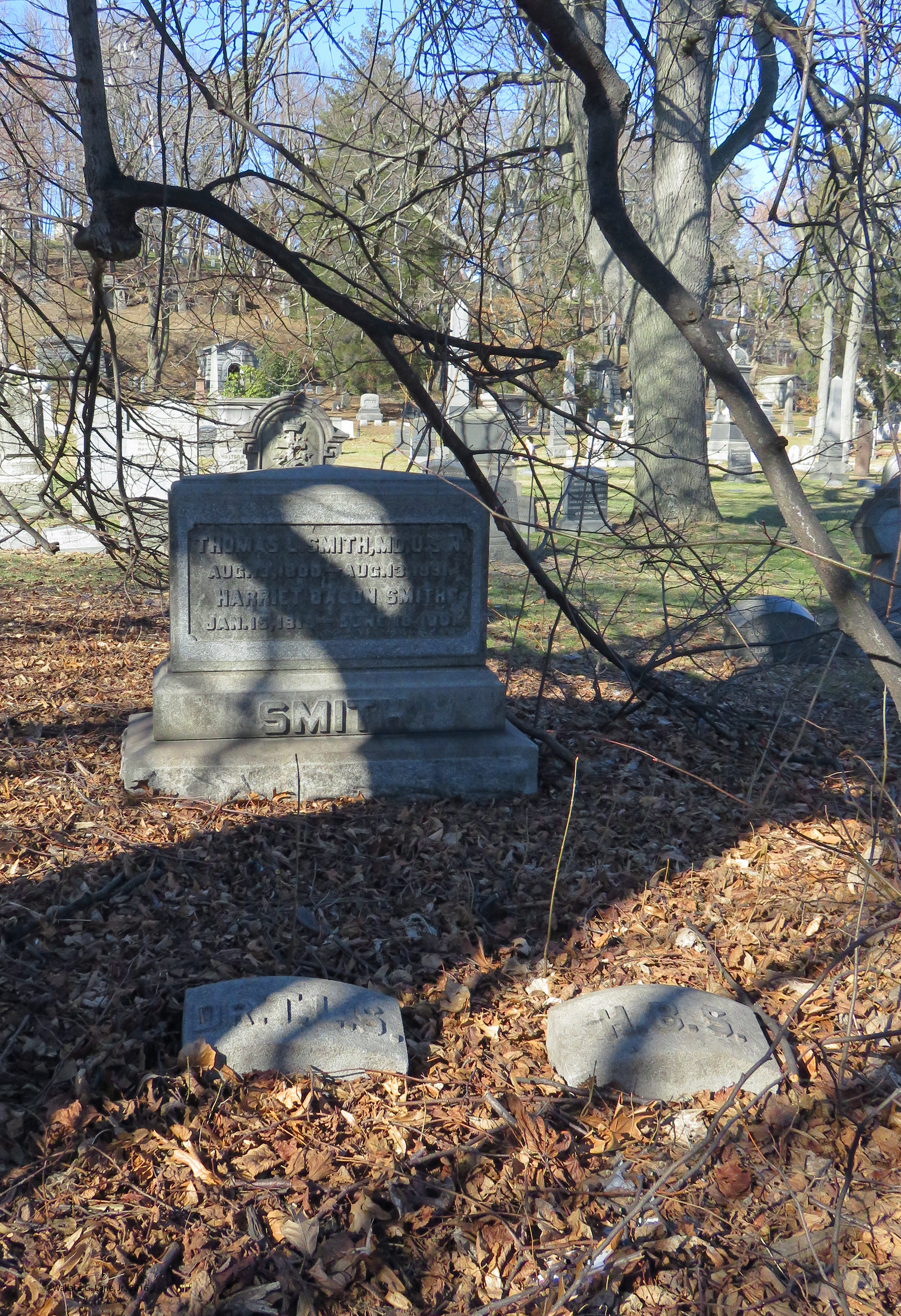———
Obituary: Thomas L. Smith published in the New York Times 1 August 1891:
Dr. Thomas Ludington Smith, a retired Medical Director in the United States Navy, died late on Thursday in his home, 167 Joralemon Street Brooklyn at the age of ninety-one years. He was born on Aug 13, 1800, in Orange, N.J., where his father Jonas Smith, was a well-to-do farmer. His mother was the daughter of Thomas Ward, a well-known Revolutionary War character. The boy was educated in the Orange Academy, and at the age of seventeen he began his medical studies with Dr. Samuel Hayes, in Newark. In 1820 he came to this city and studied with Dr. J. Kearney Rodgers, and in 1822 graduated form the College of Physicians and Surgeons and a year later from the Eye and Ear Infirmary.
He then went back to Orange to practice, but the year 1824 found him again in New York, with an office at Greenwich and Murray Streets. He took a great interest in the navy at that time and in March 1828, he obtained a commission as a Surgeon?s mate, signed by President John Quincy Adams. In the previous year he had been appointed Surgeon of the eighty-second Regiment of this state by Governor Dewitt Clinton. He did very little work in that capacity, however, and in 1830 went on the frigate Hudson to Brazil, and in the following year was assigned to the receiving ship Franklin, where he remained for three years. In that time Asiatic cholera visited this country for the first time, and Dr. Smith dwelt in the middle of it for three months.
In 1837, President Jackson appointed him Surgeon, and in 1838 he went on the Macedonian to the West Indies and in 1842 on the Congress to the Mediterranean. In 1845 and 1846 he was on the Pennsylvania and in 1847, 1848 and 1849 in the navy year in Brooklyn. The following year he went to China on the Saratoga and in 1854 was Fleet Surgeon on Commodore Perry?s Japan expedition. From 1854 to 1859 he was at the Brooklyn ship yard and in 1859 he served on the Constellation with the African squadron. He returned home in 1861 and had charge of the Brooklyn Naval Hospital at the Brooklyn yard during the four years of the war. He was on leave for some time after that, and in 1871 was appointed Medical Director with the rank of Commodore. In the same year he was retired.
After that time Dr. Smith lived very quietly in his Brooklyn home, which is filled with trophies collected from all parts of the world in his travels. In 1833 he was married to Frances B. Lathrop, who died in 1842. Four years later he wedded Harriet Bacon, who survived him. One daughter Eleanor died in 1877. Dr. Smith was an old communicant of Grace Church on the Heights and was deeply interested in charitable work. He also devoted time to naval and municipal affairs. He had been an invalid for some time suffering from heart trouble and bronchitis. The funeral will take place on Monday.
Contributor: BPB (50125307)
———
Obituary: Thomas L. Smith published in the New York Times 1 August 1891:
Dr. Thomas Ludington Smith, a retired Medical Director in the United States Navy, died late on Thursday in his home, 167 Joralemon Street Brooklyn at the age of ninety-one years. He was born on Aug 13, 1800, in Orange, N.J., where his father Jonas Smith, was a well-to-do farmer. His mother was the daughter of Thomas Ward, a well-known Revolutionary War character. The boy was educated in the Orange Academy, and at the age of seventeen he began his medical studies with Dr. Samuel Hayes, in Newark. In 1820 he came to this city and studied with Dr. J. Kearney Rodgers, and in 1822 graduated form the College of Physicians and Surgeons and a year later from the Eye and Ear Infirmary.
He then went back to Orange to practice, but the year 1824 found him again in New York, with an office at Greenwich and Murray Streets. He took a great interest in the navy at that time and in March 1828, he obtained a commission as a Surgeon?s mate, signed by President John Quincy Adams. In the previous year he had been appointed Surgeon of the eighty-second Regiment of this state by Governor Dewitt Clinton. He did very little work in that capacity, however, and in 1830 went on the frigate Hudson to Brazil, and in the following year was assigned to the receiving ship Franklin, where he remained for three years. In that time Asiatic cholera visited this country for the first time, and Dr. Smith dwelt in the middle of it for three months.
In 1837, President Jackson appointed him Surgeon, and in 1838 he went on the Macedonian to the West Indies and in 1842 on the Congress to the Mediterranean. In 1845 and 1846 he was on the Pennsylvania and in 1847, 1848 and 1849 in the navy year in Brooklyn. The following year he went to China on the Saratoga and in 1854 was Fleet Surgeon on Commodore Perry?s Japan expedition. From 1854 to 1859 he was at the Brooklyn ship yard and in 1859 he served on the Constellation with the African squadron. He returned home in 1861 and had charge of the Brooklyn Naval Hospital at the Brooklyn yard during the four years of the war. He was on leave for some time after that, and in 1871 was appointed Medical Director with the rank of Commodore. In the same year he was retired.
After that time Dr. Smith lived very quietly in his Brooklyn home, which is filled with trophies collected from all parts of the world in his travels. In 1833 he was married to Frances B. Lathrop, who died in 1842. Four years later he wedded Harriet Bacon, who survived him. One daughter Eleanor died in 1877. Dr. Smith was an old communicant of Grace Church on the Heights and was deeply interested in charitable work. He also devoted time to naval and municipal affairs. He had been an invalid for some time suffering from heart trouble and bronchitis. The funeral will take place on Monday.
Contributor: BPB (50125307)
Family Members
Advertisement
Advertisement











